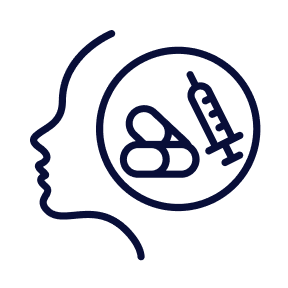




Emotional vulnerability can lead people to feel threatened in non-threatening social situations. In dialectical behavior therapy (DBT), the patient and therapist engage in dialogue that builds mindfulness, distress tolerance, emotion regulation, and interpersonal skills. Dialectical behavior therapy incorporates a broad spectrum of strategies such as self-monitoring, individual and group therapy, skills training, and impulse control to help clients manage their emotions and behaviors. This treatment modality is effective in treating a range of psychological concerns that relate to substance use disorder.
When it comes to treating addiction, people greatly benefit from access to effective addiction therapy programs that help them change self-destructive habits. That’s where a dialectical behavior therapy program in Florida can help. With this type of therapy, patients can learn to cope with stress in healthy ways while living in the moment. The goals of DBT include the following:





Dialectical behavior therapy is a type of cognitive-behavioral therapy (CBT) designed to motivate people to change destructive behaviors and regulate their emotions. Unlike other forms of CBT, though, it focuses more heavily on emotional and social aspects.
Dialectical behavior therapy can be one of the most successful treatment modalities for people struggling with a range of mental health conditions. It helps people learn how to manage and regulate emotions, interact with others, and control impulses. In addition, taking part in dialectical behavior therapy may help to improve relationships and manage emotions more effectively.
Mindfulness
Distress tolerance
The key here is to learn how to recognize the reality of a situation. When one tries to avoid this, it often leads to suffering. However, you can learn to accept even painful previous events and find yourself overcoming the emotional connection they have.
Interpersonal effectiveness skills teach patients how to be more objective in some situations. In addition, you’ll gain strategies on how to manage the relationships in your life that may bring unfavorable feelings or that make you feel more vulnerable.
Emotion regulation
In this component, you will learn how to regulate your emotions using various skills. This allows you to identify and label your emotions. This can help to reduce how vulnerable you are to them and help to decrease your emotional suffering. Different types of thinking cause different types of concerns. In dialectical behavior therapy, you and your therapist will work on distinguishing between and building several elements of the psyche.
Our Dialectical Behavior therapy program in Jacksonville, FL incorporates four main strategies to help people change negative behaviors. The first of them is mindfulness training. This helps patients focus on their present selves and living in the moment. The objective is to offer trauma-informed care and to avoid reliving past mistakes.
Improving distress tolerance is the second strategy of dialectical behavior therapy. As the name suggests, it teaches people how to tolerate stress during a crisis. Learning distress tolerance allows patients to accept current situations and themselves.
Four techniques that achieve distress tolerance include:
The third strategy of dialectical behavioral therapy involves practicing interpersonal effectiveness. It teaches people how to be assertive in relationships while keeping the relationships healthy and positive. For example, people learn to express their needs while saying “no.”
The last strategy that a dialectical behavior therapy program teaches is emotion regulation. It involves recognizing negative emotions and learning how to cope with them. For example, it can help people realize that they’re angry and how to deal with anger. In the end, it limits their emotional vulnerability while increasing positive emotions.
Dialectical behavior therapy helps people who struggle with addiction in two ways.
First, it helps them eliminate self-destructive behaviors. Substance abuse and eating disorders are two of the most common behavioral health disorders. Getting these under control is an integral part of any addiction treatment program.
Secondly, dialectical behavior therapy helps people deal with certain mental health disorders. Doing so is essential because mental conditions are often the underlying cause of addiction. To prevent relapse after treatment, they have to address this cause and avoid triggers. Post-traumatic stress disorder and borderline personality disorder are examples of conditions that DBT can treat by helping patients improve in the following areas:
This type of talk therapy helps many people to overcome the challenges they are facing. Each person’s outcome is different. However, most people find that this program can help you to achieve profound improvements in your life. It may help you to:
"*" indicates required fields